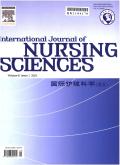为艾滋病毒感染者的健康管理开发同伴支持和精确匹配移动平台
IF 3.1
3区 医学
Q1 NURSING
引用次数: 0
摘要
目的描述人类免疫缺陷病毒(HIV)感染者同伴精准匹配与健康管理移动平台“Aspark”的开发过程,并对其可用性进行评价。方法本研究组建了一个由研究人员、软件工程师、美术设计师、临床护理专家、艾滋病同伴志愿者和心理咨询师组成的多学科研发团队。团队采用了敏捷开发模型来迭代地构建平台。利用健康框架的社会决定因素和人际关系,我们为移动平台确定了14个匹配变量。成立了一个视频制作小组,为PLWH制作关于健康管理的同行培训视频。我们整合了相关工具,为PLWH提供各种类型的支持,包括信息、工具、情感、隶属关系和评估援助。从2024年3月到5月,研究团队采用方便抽样的方法,选取了130名平台用户。它根据系统可用性量表管理了一份电子问卷,以评估平台的整体可用性。结果平台整合了“精准匹配”、“药物相互作用查询”、“用药提醒”、“健康管理”、“情绪日记”、“社区讨论”、“活动中心”等多个功能模块,实现了信息支持、情感支持、工具支持、社交支持、评价支持等全方位覆盖。精准匹配模块实现患者与同伴志愿者之间的智能配对;健康管理模块允许输入测试结果和趋势分析;药物提醒和签到功能增强药物依从性;情绪日记支持情绪记录和表达性写作;而社区模块则提供主题讨论、预约安排和组织离线活动等功能。在130份有效问卷中,超过83%的用户在系统可用性量表上得分在68分以上,表明该平台具有良好的可用性。结论“Aspark”平台为艾滋病同伴支持与健康管理的精准匹配提供了一种可行且有前景的数字化解决方案,使医疗服务提供者能够通过其功能为患者提供个性化和持续的健康支持。将来应该进行设计良好的临床试验来评估该工具的有效性。本文章由计算机程序翻译,如有差异,请以英文原文为准。
Development of a peer support and precision matching mobile platform for health management for people living with HIV
Objectives
This study aimed to describe the development process of the peer precision-matching and health management mobile platform “Aspark” for people living with human immunodeficiency virus (HIV) (PLWH) and to evaluate its usability.
Methods
The study assembled a multidisciplinary research and development team comprising researchers, software engineers, art designers, clinical nursing specialists, HIV peer volunteers, and psychological counselors. The team employed an agile development model to iteratively build the platform. Using the social determinants of health framework and the interpersonal circumplex, we identified 14 matching variables for the mobile platform. A video production team was formed to create peer training videos on health management for PLWH. We integrated relevant tools to provide PLWH with various types of support, including informational, instrumental, emotional, affiliational, and appraisal assistance. From March to May 2024, the research team used convenience sampling to select 130 platform users. It administered an electronic questionnaire based on the System Usability Scale to evaluate the platform’s overall usability.
Results
The platform incorporates multiple functional modules, including “Precision Matching,” “Drug Interaction Query,” “Medication Reminder,” “Health Management,” “Mood Diary,” “Community Discussion,” and “Activity Center,” achieving comprehensive coverage across informational, emotional, instrumental, social, and appraisal support. The precision matching module facilitates intelligent pairing between patients and peer volunteers; the health management module allows for the entry of test results and trend analysis; medication reminders and check-in features enhance medication adherence; the mood diary supports emotional recording and expressive writing; while the community module offers functions such as topic discussions, appointment scheduling, and organization of offline activities. Among the 130 valid questionnaires, more than 83 % of users scored above 68 on the System Usability Scale, indicating that the platform demonstrates favourable usability.
Conclusions
The “Aspark” platform offers a feasible and promising digital solution for precision matching in HIV peer support and health management, enabling healthcare providers to deliver personalized and continuous health support to patients through its functions. Well-designed clinical trials should be conducted in the future to evaluate the effectiveness of this tool.
求助全文
通过发布文献求助,成功后即可免费获取论文全文。
去求助
来源期刊

International Journal of Nursing Sciences
Nursing-Nursing (all)
CiteScore
6.10
自引率
2.60%
发文量
408
审稿时长
25 days
期刊介绍:
This journal aims to promote excellence in nursing and health care through the dissemination of the latest, evidence-based, peer-reviewed clinical information and original research, providing an international platform for exchanging knowledge, research findings and nursing practice experience. This journal covers a wide range of nursing topics such as advanced nursing practice, bio-psychosocial issues related to health, cultural perspectives, lifestyle change as a component of health promotion, chronic disease, including end-of-life care, family care giving. IJNSS publishes four issues per year in Jan/Apr/Jul/Oct. IJNSS intended readership includes practicing nurses in all spheres and at all levels who are committed to advancing practice and professional development on the basis of new knowledge and evidence; managers and senior members of the nursing; nurse educators and nursing students etc. IJNSS seeks to enrich insight into clinical need and the implications for nursing intervention and models of service delivery. Contributions are welcomed from other health professions on issues that have a direct impact on nursing practice.
 求助内容:
求助内容: 应助结果提醒方式:
应助结果提醒方式:


